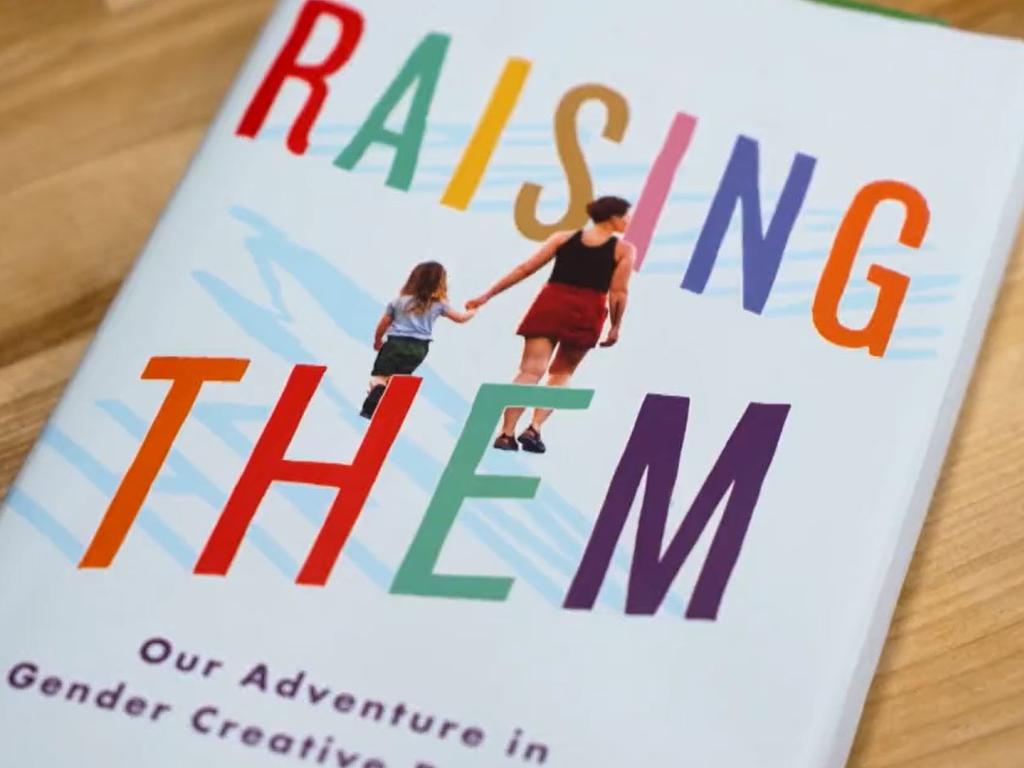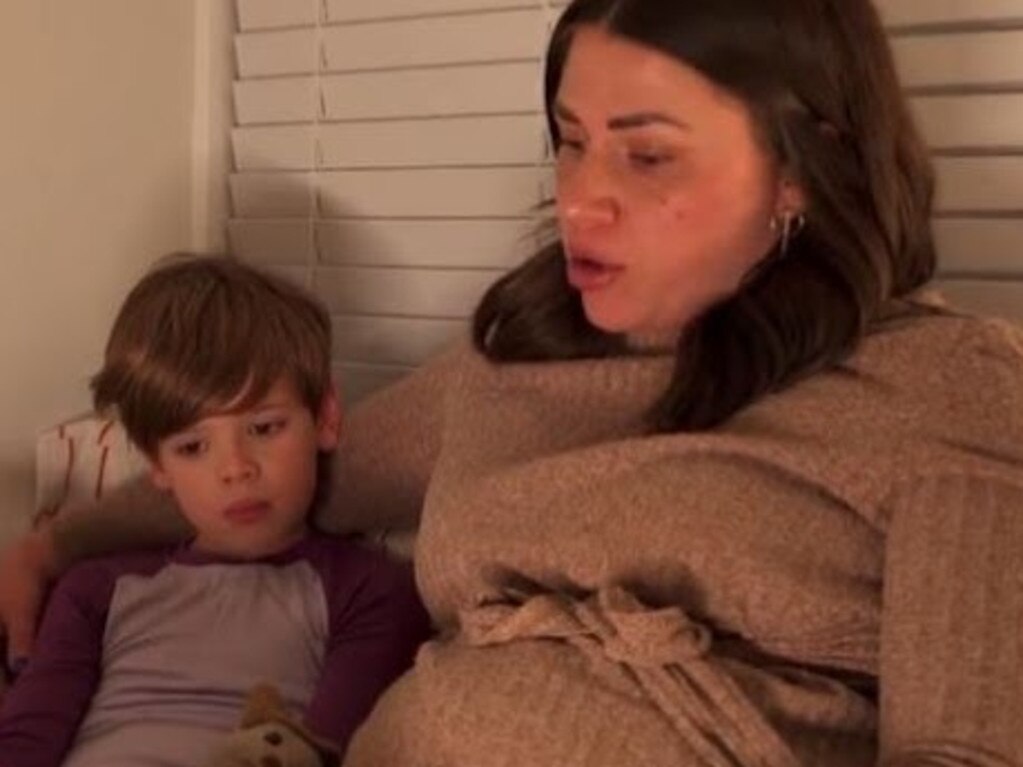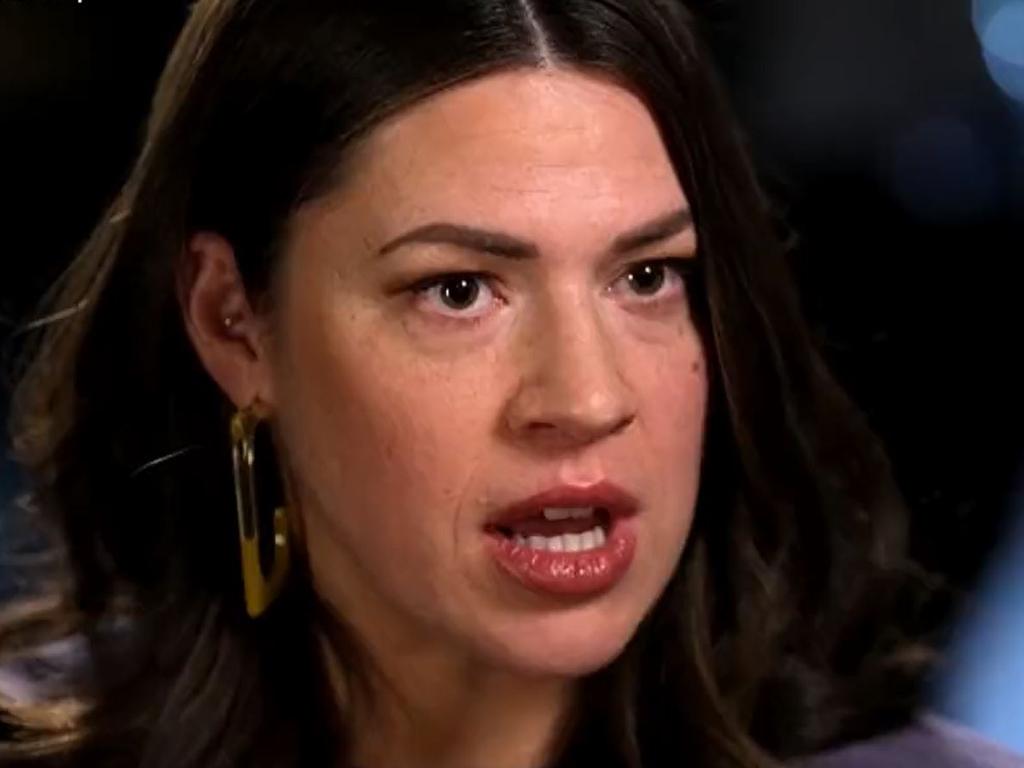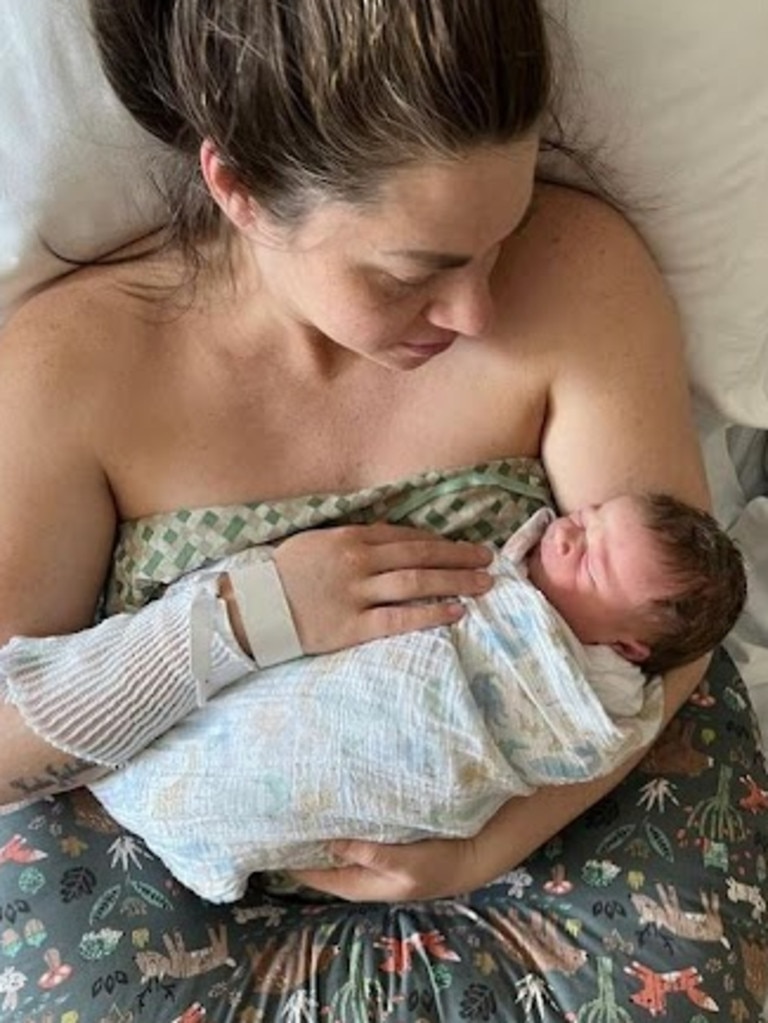‘A little bit scary’: Erin Molan condemns genderless parenting trend
The mum questioned parents Amy and Danny’s choice to raise their second child genderless, calling the radical new trend ‘scary’.
Media personality and mum Erin Molan has cringed at the concept of parents wanting to raise their children genderless, labelling the trend a “scary” experiment that takes things “too far”.
The TV presenter has joined a number of other parents who have taken to social media to question the trend after Nine’s 60 Minutes aired a package on the “unprecedented” parenting movement known as “theybies” - a play on the words “they” and “baby” - on Sunday night.
The current affairs program interviewed a number of parents choosing to raise their children gender-neutral from birth, referring to them using they/them pronouns.
Ms Molan slammed the new parenting trend.
“You don’t want to tell parents how to parent... but even to the extent that it’s an ‘experiment’... I don’t think kids should be used in that kind of way,” she said on Sky News.
“This stuff is going too far. If your child ... (is) mature enough and old enough (to) think they are not the gender they were assigned at birth, then deal with it then and do what needs to be done to make sure that child is happy and fulfilled and living a life that they want to live.”
While parents partaking in the trend are doing so to eliminate stereotypes, Ms Molan said preschools were already taking measures to ensure children could play with the toys or engage with the activities they wanted.
“I just think it’s unnecessary and actually a little bit scary...because when your kid leaves your home and enters the real world, they’re going to be bloody confused and they’re going to be disadvantaged and it’s going to be detrimental to them,” she said.


Ms Molan’s comments come after Australian couple Amy and Danny appeared on the current affairs show, which disabled comments on its story online, to explain why they raised their second child Bertie, 3, genderless.
The pair were so unhappy that their daughter Evie, now 9, was subjected to stereotypes they decided not to reveal Bertie’s gender to anyone because they didn’t want their child to be stereotyped.
“The experience of having raised Evie and what we saw happen to Evie in the assumptions that were put on Evie as a girl, were things that we weren’t that comfortable with,” Danny explained.
Instead, the parents decided a few days before Bertie’s birth to withhold the child’s gender from family and friends to ensure Bertie wasn’t influenced by gender norms.
While gender-creative parenting might seem radical, Amy said it was not hard to keep their child’s gender a secret.
“We thought people would find out very quickly because we’d have the relentless questioning about it,” she said.
“But after a while, people stop asking and then they start to make the assumptions one way or the other.”
Bertie isn’t in pink because she’s a girl, or sporting blue because she’s a boy. Instead, Bertie’s parents try to get their child to embrace and associate themselves with any rainbow colour.
While Bertie currently is enamoured by princess dresses and is regularly identified as a girl by strangers, Bertie’s parents still aren’t putting a label on anything.
“We just let Bertie be who Bertie is at the moment. And yes, now they’re outside into the
world, we can’t necessarily manage people putting that assumption onto them,” the parents said.
Amy and Danny also reject the idea that by not giving their child a gender, they are making Bertie’s life more complex.
“I don’t think Bertie is confused at all. I think what we’re trying to do is not limit Bertie. So if Bertie gravitates towards anything, we’re trying not to say, ‘No, you can’t do that’, but, ‘OK, sure, go and explore that thing’,” Danny said.


Social scientist and gender creative expert Dr Kyl Myers explained that being a gender-creative parent wasn’t about ignoring gender but expanding the idea of what it means.
“We’re not trying to eliminate gender. We’re actually trying to show how limitless gender can be,” she explained.
Dr Myers and her Australian partner Brent raised their child Zoomer genderless until he reached age four and revealed his own gender to them.
“He said, ‘I love he/him pronouns’ and, you know, and I was like, ‘that’s fantastic’,” she said.
Dr Myers said she did not believe gender was just biological, rather it was “something you feel inside”.
She also said she believed it was more confusing for children to have gender thrust onto them.
“I think it’s actually more confusing to make people … make children think that, what, the 8 billion people on the planet all neatly fit into one of two boxes?”
Dr Myers gave birth to her second child, Neon, in March and plans to raise the child genderless, and said the stress of a newborn baby was far more on her mind than her approach to gender.
“The things that kind of, that I think about have very little to do with gender. You know, I’m thinking of more like ‘OK like how are we going to navigate like sleepless (nights)?’”


Dr Lise Elliot is a neuroscientist that has been studying the human brain and gender development at the Rosalind Franklin University of Medicine in Chicago for more than 30 years and told 60 Minutes she found gender-creative parenting interesting because it was so new.
“What they’re doing really is unprecedented,” she said. “There have been really no societies that have tried to have gender-free rearing,” she said.
“I think certainly gender-creative parenting in the sense of not labelling your child, not having expectations about what they’re going to be interested in, what they’re going to be good at – I totally get that motivation. It’s just a very, very hard thing to do,” she explained.
However, Dr Elliot pointed out that raising children without gender may help put to rest the myth that men and women are wired differently.
“The actual psychological differences between men and women, and boys and girls are really quite small. There is so much more overlap in our traits, behaviours and strengths than there is a difference.
“And yet what putting these gender labels does on an early age is it widens the gap. It drives boys and girls apart.”






